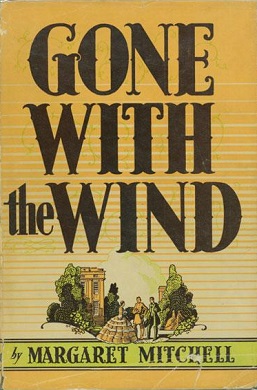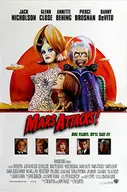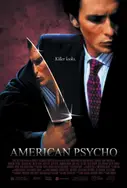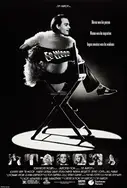books
Books like Gone with the Wind
Gone with the Wind
Margaret Mitchell
It takes guts to make your main character spoiled, selfish, and stupid, someone without any redeeming qualities, and write an epic novel about her. But it works for two reasons. First of all you wait for justice to fall its merciless blow with one of the most recognized lines in cinema ("frankly my dear, I don't give a damn"), but you end with a broken and somewhat repentant character and you can't be pitiless. Secondly, if you were going to parallel the beautiful, affluent, lazy, spirited South being conquered by the intellectual, industrious North, what better way to do that than with characters who embody those characteristics? You come to feel a level of sadness that the South and Scarlett lost their war and hope that they will rebuild.I enjoyed the picture of pre-war South outside of what you learn in history class approved by the nation that won the war. If the South had won, we would have an entirely different picture painted. A story of lush lands and prosperity abounding with chivalry and gentility by a (too) passionate people. If you visit the South today, you can see that all these generations later the wounds of the war and the regret at losing the way of life are still fresh. But if it had not been the civil war, it would have been by other means that the lazy sprawled out way of life would have been conquered by our efficient, compact, modern lives. I enjoyed the picture of plantations that did not abuse slaves to the extent that you read about in many memoirs. There was still a disrespect in that they viewed "darkies" as ignorant and childish and worthy of being owned, but there were those who cared for those in their trust. And the North who came down riling up the lowest of the slaves to flip the oppression did not want any contact with a race they feared. Prejudice takes many faces. Slavery is such an important part of American history, but I don't know that I agree with the format in which it is taught (at least the way it was taught to me). We take young, tolerant children and feed them stories of racism and abuse and then tell them the world is naturally prejudice (that they are prejudice) so don't be. White children start feeling awkward and aware and black children start feeling mistreated and aware. We manage to teach children about Indian and Holocaust history without the same enthusiasm to end racism by breeding racism. There has to be a better way. But I digress.I also enjoyed Mitchell showing the volatile formula in which the KKK was aroused, that it wasn't just a disdain for free darkies but a need to protect their women and children from the rash anger now imposed on them through this new regime. Not that there are any redeeming qualities in the KKK, or even the Southern rash justice by pistol shot to curb wounded pride, but it was interesting to learn the wider circumstances in which it arose. The entire picture of the Southern perspective from the hierarchy of slaves to the disdain of the reconstruction was enlightening. The post-war difficulties, that sometimes it's harder to survive than die, were some of my favorite epiphanies of the story. What everyone in the South went through, both white and black, after everything was deconstructed and they didn't know how to rebuild. It wasn't just about freeing slaves but about rebuilding an entire way of life and sometimes change, even good change, can be this scary and destructive.My one complaint about the book was at times the description was lengthy. I'd get a grasp for the emotions of Scarlett that are supposed to describe the emotions of all Southerners or the description of the land at Tara as a representation of the rich red soil all Southerners love and then Mitchell would go on for paragraphs or pages rehashing that feeling to pull the most emotion out of you. It worked, but sometimes I think she could have done so in fewer words. I view Scarlett as a representation of the South in which she loved. She did not care from whence the wealth came or believed that it would ever end. Because she was rich and important, she would conquer. As the Yankees attempted to rebuild the South, fresh in their embitterment at a war they did not want to fight, you can both see their reasoning and feel for the Southerners who were licked and then stomped on in their attempts to gain back of their life. You see that in Scarlett. On one hand you don't pity her and think she needs a lesson in poverty and on the other hand you want her to survive. Either she can lie down and cling to her old ways or she can debase herself and rebuild. Survival, not morality, is her strongest drive.Oh Scarlett. We all know people like her. People who unscrupulously use their womanly charms to get ahead and carry a deep disdain for those bound by concepts of kindness, morals, or intelligence and most especially for those who see them for what they are instead of being manipulated. People who care for nobody but themselves and who find enjoyment in life not in what they have, but in conquering the unattainable that is only desirable because it is out of reach. I loved how Mitchell showed Scarlett's decline from a religious albeit not believing girl who allowed her rationalization and avoidance to carry her from one sin to the next of intensifying degree. An excellent portrait of the degradation of character. Initially I thought she was the only character who wasn't growing, actually digressing. But by the end she does grow up. In no regard is this greater than in her eventual desire to be a mother. Turning from her ravenous post-war desire to survive to her acceptance of life and the people around her as the way they are, eventually Scarlett grows into the person she was meant to be. As did the South. Prideful and resentful, eventually they had to accept that they lost the war and take what was given them and try to make it work.Scarlett realizes that Melanie is not the weak, cowardly girl she always assumed but the most courageous character in the book and one who gets her means by influence and persuasion instead of Scarlett's uncivil ways. It is Melly, not Scarlett, who could get anything she desires and her heart is not her weakness but her greatest strength. Finally Scarlett values the importance of love and sees that it does not make one weak but deep to possess it. OK, I won't go that far. She's not intelligent enough to analyze love, but she grows up enough to fall for it anyway, to realize she needs people. She sees Ashley not as the strong, honorable character she had always esteemed but the weakest and least honorable character in the book. Anyone who would tease another woman with confessions of love just so he could keep her heart and devotion at arm's length is not truly honoring his marriage vows. The greatest gift he could give his wife was the knowledge that he loved her. And we all know that like any pretty toy, once Scarlett had taken him, she would have discarded him. The debasing knowledge that he is not fit for a rougher way of life doesn't endear him. For all his intelligence, he could have picked himself up by the bootstraps and made something of himself if he wanted to survive. He is a representation of the Old South that had to die but many couldn't let go of, even today. That's the sadness of the loss of the Southern way, still longing for the past instead of moving forward.Then we come to Rhett, the only character with the ability to conquer Scarlett, who was quite the devil. Just like the ladies in old Atlanta I found myself at times entranced by his charms, but often I did not like or trust him. I was often torn about the way he constantly encouraged Scarlett to fall another wrung on her morality ladder and mocked her emotions, mocked all of Southern civility. What annoyed me most about him was that he showed love by coddling his wife and child until they were spoiled, dependent, but not grateful, and this was his idea of being a good father and husband. And yet I sympathized with him and was often amused by him. More than anything I enjoyed his intelligence as a way for Mitchell to introduce the Yankee viewpoint, using his sarcasm as satire. I loved the whole discussion of his not being a gentleman and her no lady.More than anything I saw his slow conquering of Scarlett's heart as a parallel to the slow enveloping of the South by the North until they realized they were dependent on their conquerors but could still maintain their fierce spirit, a marriage of North and South. The fact that she could never fully understand him shows the divide between to two philosophies. But does the South lose in this blending? Can't they adopt the intellectual ways of the North and still maintain their civility? Just like Ashley, they would rather have dreamt and remembered than changed.The characters in the book are so vivid that like or dislike you cannot get them out of your head. There are no more vibrant characters in the history of literature that Scarlett O'Hara and Rhett Butler. There is a reason this book is a classic. Everyone should read it at least once in their life to appreciate the civil war and understand the sadness and loss that enveloped the country.

Filter by:
Cross-category suggestions
Filter by:
Filter by:
Filter by:
Filter by:
Filter by:
Filter by:
Filter by:
Filter by:
Lists with Gone with the Wind



- 21 Movies
- 8 Games
Watch later
List includes: Mars Attacks!, Futurama, The Shining
July 2022
0
@nathaliazxavier

- 1 Book
uhhh
List includes: Gone with the Wind
November 2021
0
@cassierutter



- 67 Movies
- 63 Books
Films Based on Books
List includes: Trainspotting, American Psycho, Fear and Loathing in Las Vegas
October 2021
8
@truthwolf



- 205 Movies
- 170 Books
to watch
List includes: Apocalypse Now, Trainspotting, Ed Wood
February 2021
0
@claudex69x



- 23 Books
read
List includes: The Kite Runner, The Great Gatsby, Hamlet
December 2020
0
@201800711



- 13 Books
reading list
List includes: The Picture of Dorian Gray, Fahrenheit 451, Animal Farm
May 2020
0
@mctzz



- 5 Books
Favorite Books
List includes: Ethan Frome, Gone with the Wind, Metamorphoses
May 2020
0
B
@bhunt



- 303 Movies
- 130 Games
Before I Die
So many things, so little time...
January 2020
10
@amorfati